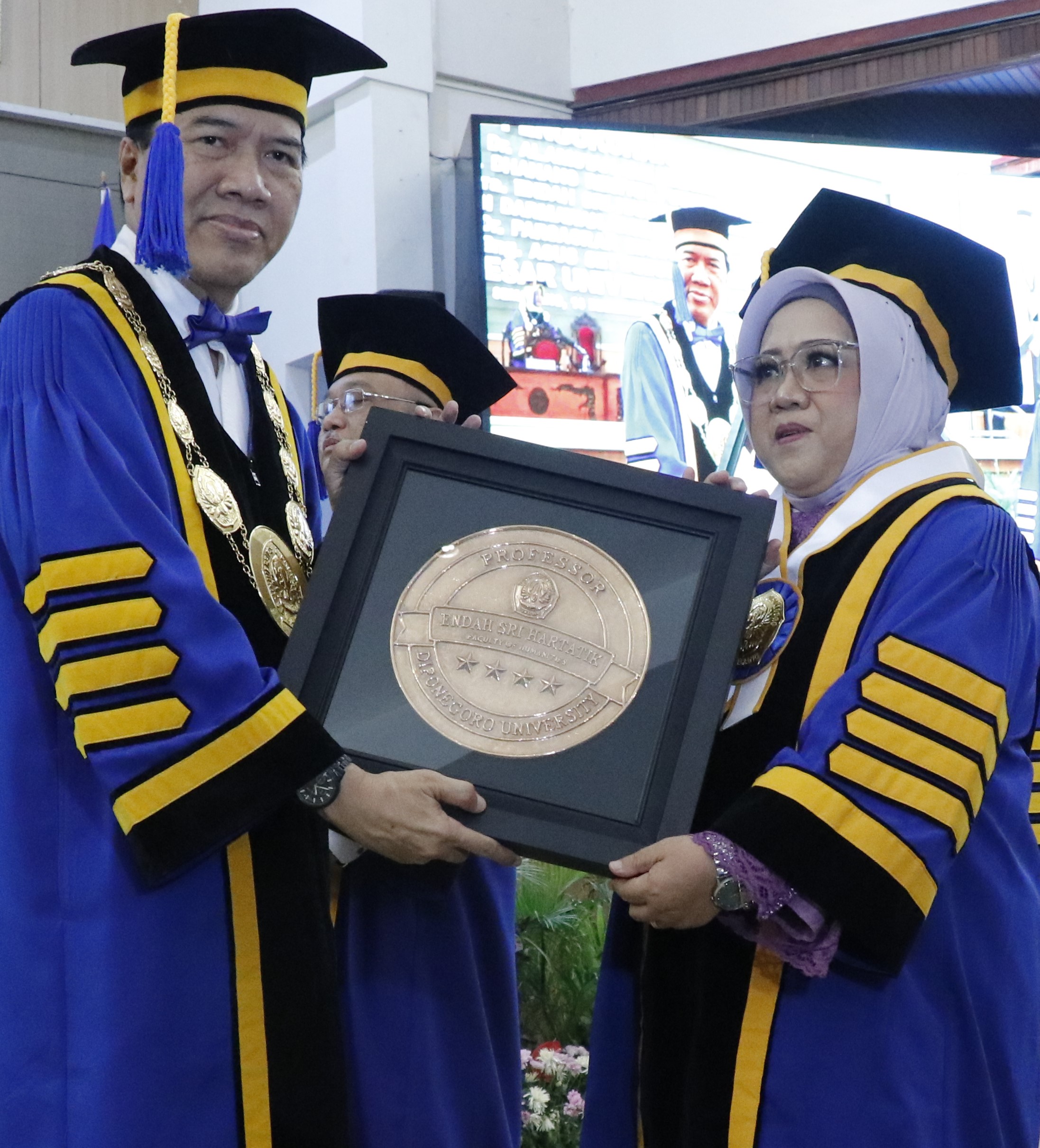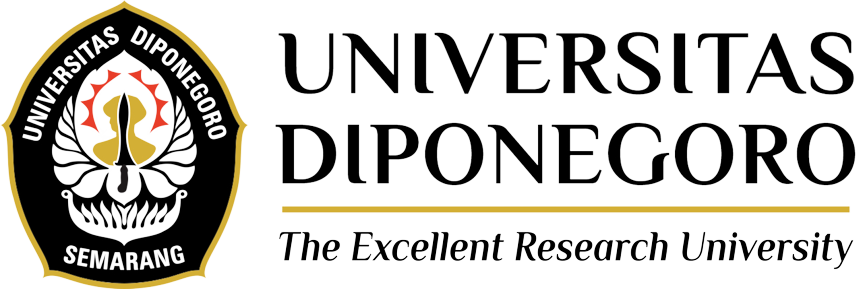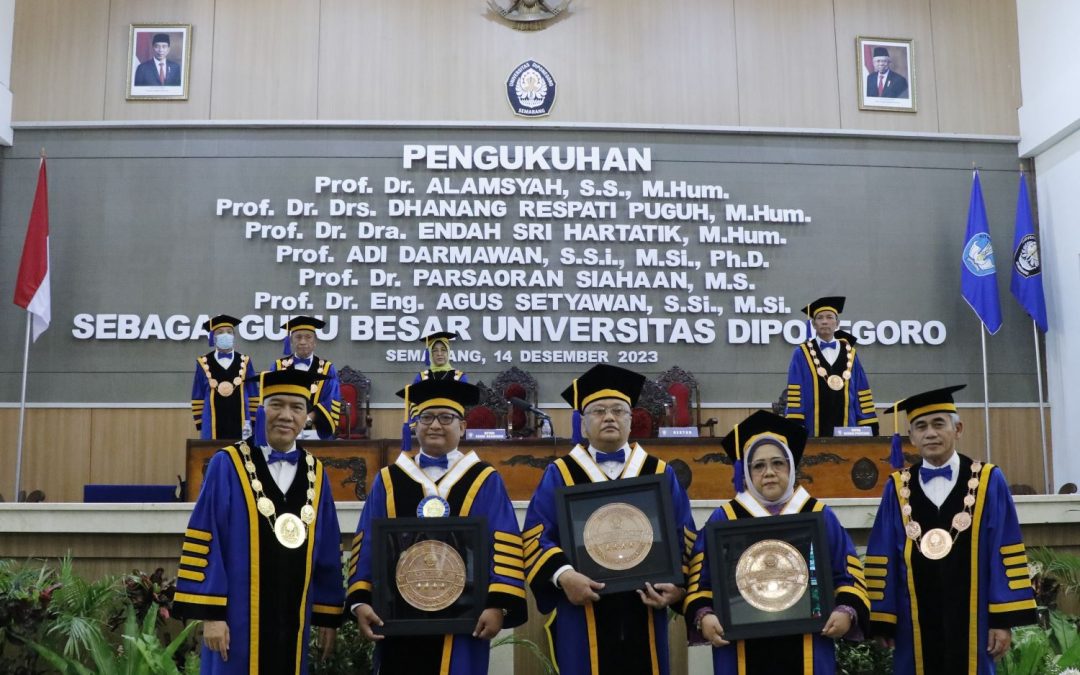Diponegoro University inaugurated three professors from the Faculty of Humanities on Thursday (14/12) at the Prof. Soedarto, S.H. Building, UNDIP campus, Tembalang. In the morning session, the three professors who were inaugurated, namely Prof. Dr. Alamsyah, S.S., M.Hum., Prof. Dr. Drs. Dhanang Respati Puguh, M.Hum., and Prof. Dr. Drs. Endah Sri Hartatik, M. Hum.
In his scientific material entitled “Challenges and Responses: The Ups and Downs of the Jepara Carving Crafts Creative Industry 1980-2022,” Prof. Alamsyah said that Jepara carving crafts are part of the creative industry whose existence has long historical roots since the 16th century. This carving craft reached its peak from 1997 to 2000. The boom occurred due to fluctuations in the Rupiah exchange rate against the USD, which was indicated by the high total export value, number of business units, number of exporters and number of workers. The profits of collectors, small entrepreneurs, and prominent entrepreneurs increased rapidly, while the carvers got little profit.
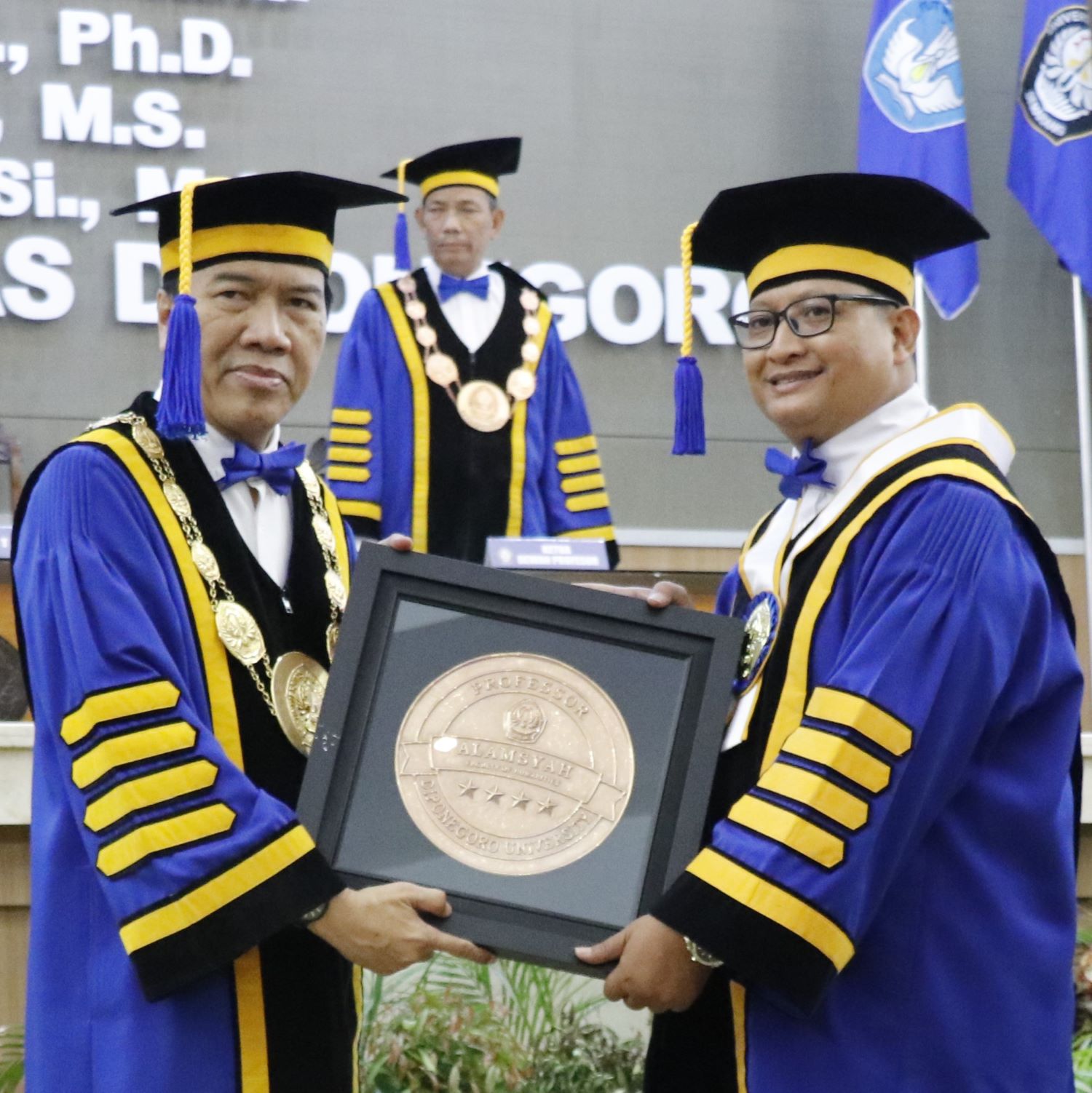
“The decline in carving crafts occurred from 2002 to 2010 due to various factors. These include world economic conditions starting to stabilize, decreasing international market demand, availability and increasing prices of raw materials, changes in payment systems or down payments, poor product quality and raw material quality, low wages for engraving workers, marketing, and labor availability,” he said.
Meanwhile, Prof. Dhanang’s scientific speech regarding the “Preservation of Javanese Performing Arts in the Cultural Politics Context of the Republic of Indonesia” discussed the management of cultural heritage as one of the steps that need to be taken as a cultural policy. The preservation of Javanese performing arts is an inseparable part of Indonesian cultural politics.
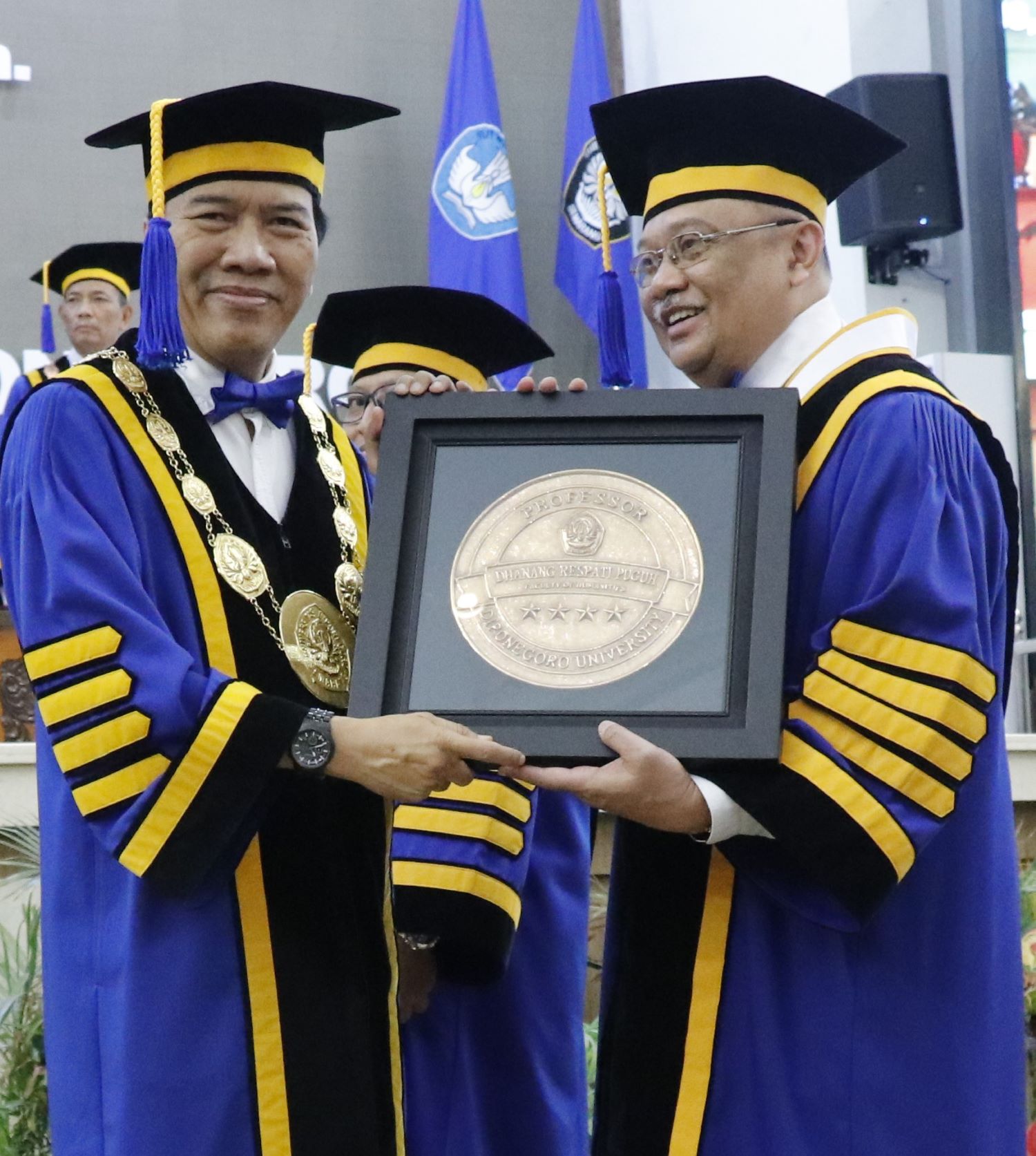
“The preservation of Javanese performing arts is used to build national culture, national character and cultural diplomacy. The preservation of Javanese performing arts to build national culture is carried out by establishing cultural centers in the form of arts education institutions, arts centers and cultural parks; utilizing Radio Republik Indonesia and establishing Lokananta; as well as organizing performance stages. These institutions are the pillars supporting the preservation of Javanese performing arts through the creations and innovations they produce. The preservation of Javanese performing arts for the development of national character is carried out through gendhing works, wayang performances and kethoprak. Preserving Javanese performing arts for cultural diplomacy is mainly carried out through arts missions held by the government and the private sector,” explained Prof. Dhanang.
Meanwhile, Prof. Endah brought up the scientific research title “Reading the Past and Imagining the Future of Land Transportation in Indonesia.” According to her, the Daendels highway has opened up a new space for transportation connectivity. This highway has indirectly given birth to small roads connected to residential areas and plantation centers, especially sugar cane, tea and coffee plantations.
“The Daendels highway has also integrated river transportation, which was previously the main network to get to port cities. The ports that the Daendels highway passes through are important connectivity centers for transporting goods or plantation production and passengers, such as Cirebon, Tegal, Pekalongan, Semarang and Surabaya,” concluded Prof Endah. (LW-Public Relations)
